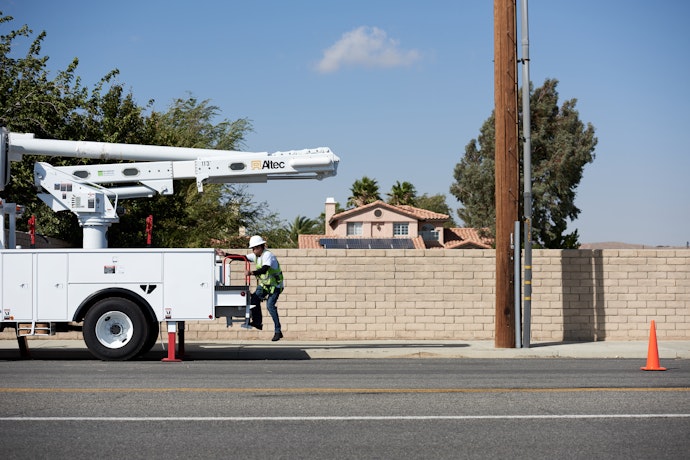What is Telematics and How Does it Benefit Fleets?
Telematics technology allows the sending, receiving and storing of information relating to vehicles via tracking devices...
Read more
When it comes to tracking company assets like fleet vehicles, GPS tracking devices are often wired to draw from the vehicle’s power supply. But some assets and equipment don’t have a power supply that you can connect a charger to. The asset might be situated in an isolated location without power, or it may not be possible to connect to its power supply. Is it possible to track non-powered assets with a GPS tracker?
Verizon Connect New Zealand has worked with several clients who needed to do just that. For example, you may need to track the location of truck trailers and also record door opening events. Other assets such as containers or portable offices may also need to be tracked in near real-time to monitor unauthorised entry, employee start and stop times, or to simply verify when the mobile asset is on site. This non-powered (or "unpowered") equipment can be tracked and monitored using battery-powered GPS asset trackers .
There are several companies that supply GPS tracking hardware that meets all these requirements. Verizon Connect’s asset and vehicle tracking solutions offer the flexibility to use the hardware best suited to your business.
If you can't attach the device to the asset's power supply, how are they powered? Most are powered by special long life batteries, which are sometimes replaceable or rechargeable, that can last up to seven years operating on low power modes. This incredible battery life can vary depending on the frequency of updates from the tracking device - the more often the GPS tracker needs to send updates, the shorter the battery life will be. If you only need one or two updates a day you can usually get an extremely long battery life before replacement is needed.
The size of a battery powered GPS tracking device varies depending on the make and model. Battery GPS trackers need to pack in a lot of high performance hardware: a gsm/lte aerial and sim card for connection to cellular networks, GPS / glonass receivers, internal storage if network connectivity is intermittent, and most importantly a long-life internal battery or 3-4 AA 1.5v lithium batteries. However they’re usually the size of a mobile phone - small enough to conceal between the corrugations of a container or on a trailer to avoid being tampered with.
Find the right solution for your business with our free Fleet Management Buyer’s Guide.
Battery powered GPS devices are portable, self-contained and smart enough to incorporate sensors like accelerometers to detect door openings or vibrations. Companies that operate fleets of vehicles and assets have found many different uses for them, particularly in the area of asset security and management.
As fleets grow, the number of assets they manage increases exponentially. This can prove to be a headache for administrative staff, particularly when it comes to asset tracking or inventory management.
With asset tracking devices attached, equipment can constantly report their GPS location regardless of where they are across New Zealand. A common dashboard, like that found in Verizon Connect Reveal, provides managers with global coverage and insight into their fleet, allowing them to easily monitor unpowered assets, and receive alerts and notifications on custom built android and iOS smartphone apps when the asset is moved or some other exception occurs.
As real time GPS trackers become more widespread, and the tracking devices more adaptable, the number of different uses will continue to grow. There are already a wide variety of uses of telematics technology including:
Using GPS fleet tracking, including monitoring unpowered assets, is a giant leap forward in improving office efficiency, and saving fleet managers a huge amount of time in tracking and monitoring company equipment.
Tags: Field Management, Productivity & Efficiency, Dispatching & Scheduling, Safety, Vehicle & Asset Security



Find out how our platform gives you the visibility you need to get more done.
Telematics technology allows the sending, receiving and storing of information relating to vehicles via tracking devices...
Read moreFleet management software can benefit businesses by increasing fuel efficiency, reducing operating costs, improving fleet...
Read moreAs a fleet owner, your day-to-day costs can quickly add up. What you don’t know is there are further hidden, expensive...
Read moreAble Security Group started operating in September 1993 on the Sunshine Coast, Queensland, Australia. Over the next 25...
Read more